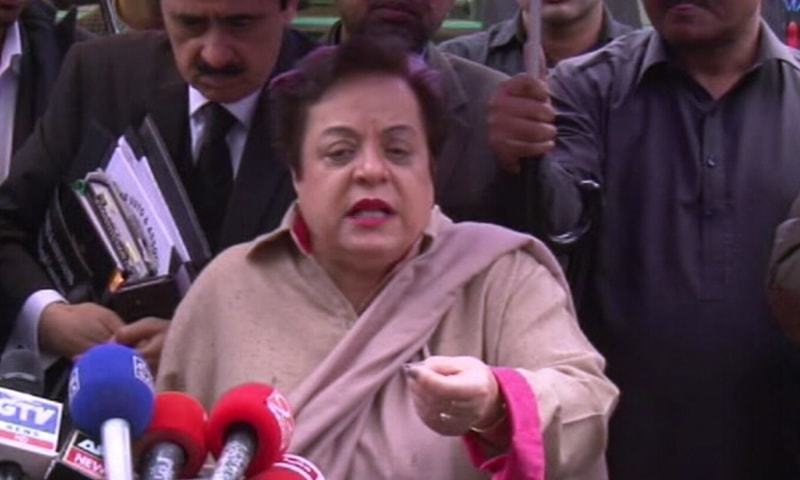Federal Minister for Human Rights Shireen Mazari on Thursday told the Islamabad High Court (IHC) that the cabinet had approved a bill to ban corporal punishment for children, adding that the same would be introduced for debate and passage by the Parliament.
During hearing of a petition, filed by singer and activist Shehzad Roy, against corporal punishment for children, IHC Chief Justice Athar Minallah questioned what had become of lawmaking on the issue by the federal government.
The court wondered why – despite the the federal cabinet having approved a bill on the issue in March 2019 – the relevant bill was not brought to the Parliament and directed the law ministry to appoint an officer to determine the reasons behind the delay.
He also inquired whether laws in provinces were being enforced to stop violence against children.
Responding to the court’s queries, Mazari confirmed the federal cabinet had approved the bill and it had to be sent to Parliament now.
Roy’s lawyer informed the court that lawmaking had been done in Khyber Pakhtunkhwa and Sindh to stop violence against children.
“What is the problem with the federal government then?” questioned Justice Minallah.
Mazari told the court that while her ministry “fully supports” Roy’s petition, the “law ministry said it is out of your [ministry’s] jurisdiction”.
Ensuring safety of children from such violence was the “job of the federal government and it is a human rights issue”, remarked Justice Minallah.
Explaining why the bill had not been tabled in Parliament despite being okayed by the cabinet, Mazari said ministry of interior had sent the bill to the Council of Islamic Ideology (CCI) and the council had “raised objections” on it.
At this, Justice Minallah remarked that “Islam teaches about the dignity of humans, not violence [against them].”
He further remarked that he could not “understand why the interior ministry had sent good lawmaking to the council for approval”.
The court observed that the CCI had objected to the bill “without citing relevant Islamic teachings” and that “all incidents of violence against children are a result of not following Islamic teachings.”
“The mindset of punishing children physically must be changed. It is this mindset that becomes the foundation for violent crimes against children,” the chief justice observed.
“Even if a law does not exist to protect them, physical punishment of children cannot be allowed,” Justice Minallah said.
The interior ministry’s representative told the judge no case of violence against children had been reported from schools in the capital.
A police spokesman also confirmed the same to the court, citing a report by the Islamabad police chief.
At this, Justice Minallah said “complaints are only made when something big happens.”
Justice Minallah, adjourning the hearing till March 30, said he would reserve his decision on the petition in the next hearing and directed the law ministry to submit a written reply by March 12 on the progress of the bill to stop violence against children.
Speaking to reporters outside the IHC following the hearing, Mazari said Roy’s petition Roy was “very important” and that her ministry fully “supports it”.
“We have categorically informed the court [during today’s hearing] that the prime minister and federal cabinet had approved the bill and it should have been sent to the Parliament.”
She reiterated that this could not be done earlier because the law ministry said it was a matter for the interior ministry.


